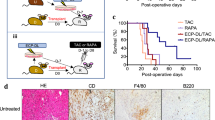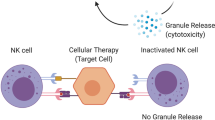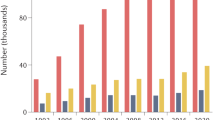Abstract
IMMUNOLOGICAL enhancement is historically the oldest method for impeding graft rejection. Such an outcome resulting from the injection of antiserum directed against a transplant seemed paradoxical, and the mechanism has been under discussion all through the years of study of antigens as putative tolerogens to the present time when immunological enhancement is the best available method for donor-specific immunosuppression in animal models1. The shortcomings of non-specific immunosuppression at present used in clinical transplantation are so great that an interpretation of the mechanism of immunological enhancement is important, in order to find how the method can best be adapted for clinical use.
This is a preview of subscription content, access via your institution
Access options
Subscribe to this journal
Receive 51 print issues and online access
$199.00 per year
only $3.90 per issue
Buy this article
- Purchase on Springer Link
- Instant access to full article PDF
Prices may be subject to local taxes which are calculated during checkout
Similar content being viewed by others
References
French, M. E., and Batchelor, J. R., Transplant. Rev., 13, 115 (1972).
Milton, J. D., Mowbray, J. F., Ruszkiewicz, M., and Carpenter, C. B., Transplantation, 15, 579 (1973).
French, M. E., Transplant. Proc., 5, 621 (1973).
Stuart, G. P., Fitch, F. W., and Rowley, D. A., Transplant. Proc., 2, 483 (1970).
Yunis, E. J., and Amos, D. B., Proc. natn. Acad. Sci. U.S.A., 68, 3031 (1971).
Benacerraf, B., and McDevitt, H. O., Science, N.Y., 175, 273 (1972).
Bach, F. H., Widmer, M. B., Bach, M. L., and Klein, J., J. exp. Med., 136, 1430 (1972).
Klein, J., and Park, J. M., J. exp. Med., 137, 1213 (1973).
Livnat, S., Klein, J., and Bach, F. H., Nature new Biol., 243, 42 (1973).
Ono, K., and Lindsay, E. S., J. Thoracic Cardiovasc. Surg., 57, 225 (1969).
MacDonald, A. S., Davies, D. A. L., and Calne, R. Y., 4th Internat. Congress. Transpl. Abstr., 180 (Grune and Stratton, 1972).
Diepenhost, P., Sprokholt, R., and Prins, H. K., Vox Sang., 23, 308 (1972).
Hauptfeld, V., Klein, D., and Klein, J., Science, N.Y., 181, 167 (1973).
Widmer, M. B., Alter, B. J., Bach, F. H., Bach, M. L., and Bailey, D. W., Nature new Biol., 242, 239 (1973).
Eijsvoogel, V. P., DuBois, M. J. G. J., Melief, C. J. M., De Groot-Kooy, M. L., Koning, C., Van Rood, J. J., Van Leeuwen, A., DuToit, E., and Schellekens, P. T. L. A., in Histocompatibility Testing 1972 (Munksgaard, Copenhagen, 1973).
Author information
Authors and Affiliations
Rights and permissions
About this article
Cite this article
DAVIES, D., ALKINS, B. What Abrogates Heart Transplant Rejection in Immunological Enhancement?. Nature 247, 294–297 (1974). https://doi.org/10.1038/247294a0
Received:
Revised:
Issue Date:
DOI: https://doi.org/10.1038/247294a0
This article is cited by
-
Effect of donor specific transfusion (DST) is restricted to the rat combination used and closely related with alloantibody in heart transplantation
Immunology & Cell Biology (1989)
-
Variable expression of major histocompatibility antigens: Role in transplantation immunology
Kidney International (1986)
-
Kidney grafting between rats which carry recombinant major histocompatibility haplotypes
Immunogenetics (1980)
-
Kidney alloantigens determined by two regions of the rat major histocompatibility complex
Immunogenetics (1978)
Comments
By submitting a comment you agree to abide by our Terms and Community Guidelines. If you find something abusive or that does not comply with our terms or guidelines please flag it as inappropriate.



